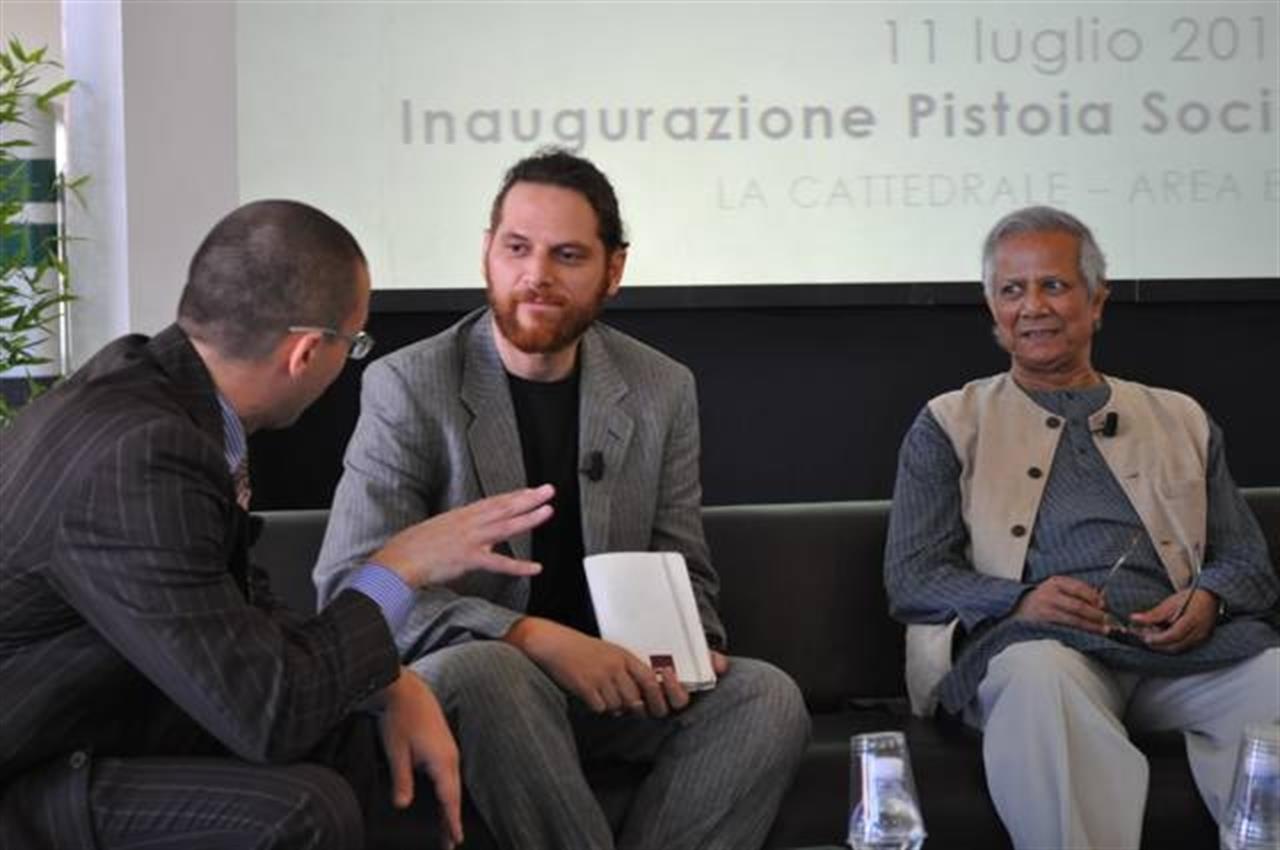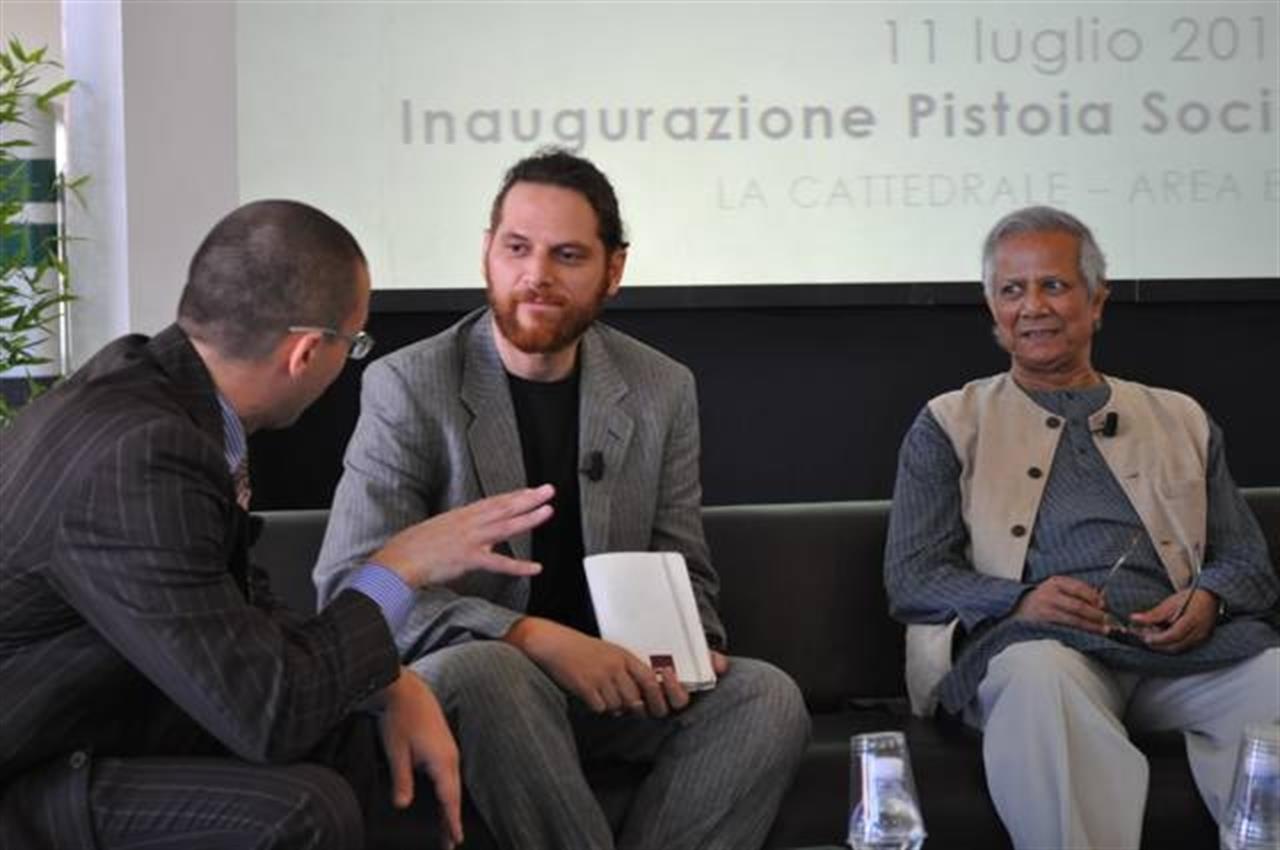
What a schizophrenic week I had. I spent the first half challenging a Nobel Prize Laureate in public and the other half championing an idea that initially nobody took seriously. I often ask myself why I can’t swim with the tide but must always surf à rebours (against it).
I still look for an answer, but I learnt that I must follow my instinct – that mysterious inner voice. It’s the only compass I trust.
On Wednesday, I was in Tuscany to take part in a panel discussion with the Nobel Prize Laureate Mohammed Yunus. We were at the launch of Pistoia Social Business City. Although I ran into the risk of being booed by the entire audience I could not refrain from criticising the social business model which Prof Yunus advocates for: a profit making enterprise set up to meet social needs which doesn’t give any financial return to the investors but the original capital. The profits are entirely reinvested in the mission.
Without stressing my admiration for Prof Yunus’s achievements developing microcredit in Bangladesh and spreading it worldwide, I had to highlight the risks of his business model in postindustrial economies such as Italy and the other European countries.
First of all, such a model doesn’t change the founding model of the non-profit sector already strained by the economic crisis and public funding cuts, but it competes with it for the same resources. Moreover, the most innovative civil society organisations already make a surplus at the end of the year and reinvest it in the mission or build reserves. This is allowed by most national legislations.
Secondly, the social business model doesn’t challenge the architecture of finance and economy as it is. There is no incentive for private savings and commercial companies to invest in the social sector if the business doesn’t offer any financial return. Only philanthropists, CSR and public money can support it. Furthermore, the capital loses value if inflation is not factored in.
Finally, the companies which champion Yunus’s social business in Bangladesh – such Danone – don’t apply the same principles in Western countries as they want to make profits. I lost my patience when Credit Agricole was mentioned. Banks should do their job and lend to citizens and SMEs instead of playing with cool ideas because it looks good.
I understand the mediatic power of an eloquent speaker such as Prof. Yunus but this time I had to say NO.
When The European Commission launched the Social Business Initiative in October last year, Sir Ronald Cohen gave the keynote speech after Prof Yunus. The British banker, converted to social investments – father of Big Society Bank and Social Impact Bond – proposes a business model suitable for European economies because it offers a financial return (although capped). This is the right path to pursue in Europe and I hope we won’t be tempted by another for any longer. Public resources must invested where there is a real new wealth creation and added value for society.
I did, however, make two discoveries in Pistoia. Marco Tognetti, one of the organisers of the event and president of the coop LAMA, is a one of the Italian social entrepreneurs to keep an eye on. The other surprise was Giovanna Melandri MP, twice a Minister in former governments. She is about to launch UMAN, a foundation fostering impact investing.
As you know I don’t like critising for the sake of criticism, but my passion is paving new paths. Therefore, I spent the rest of the week pushing a new idea and this time exposing myself to criticism: how online gaming and gamification offer new tools to engage people in society, especially youth.
The Social Innovation Park and Euclid Network organised a seminar in Bilbao. Despite the initial skepticism of the same organisers I was energised by the buzz that emerged in the group drawn from all sectors: academia, business, NGOs, institutions and gamers. Games have been always used to educate and connect people. Videogames can have the same functions in our network society, where we are all connected online through social media.
In a day and half, six new ideas for online games were devised, and in the next months we expect them to become reality. Unfortunately mine failed: how to use a videogame to raise an army to take over Brussels. I wonder why?!?
Nessuno ti regala niente, noi sì
Hai letto questo articolo liberamente, senza essere bloccato dopo le prime righe. Ti è piaciuto? L’hai trovato interessante e utile? Gli articoli online di VITA sono in larga parte accessibili gratuitamente. Ci teniamo sia così per sempre, perché l’informazione è un diritto di tutti. E possiamo farlo grazie al supporto di chi si abbona.

